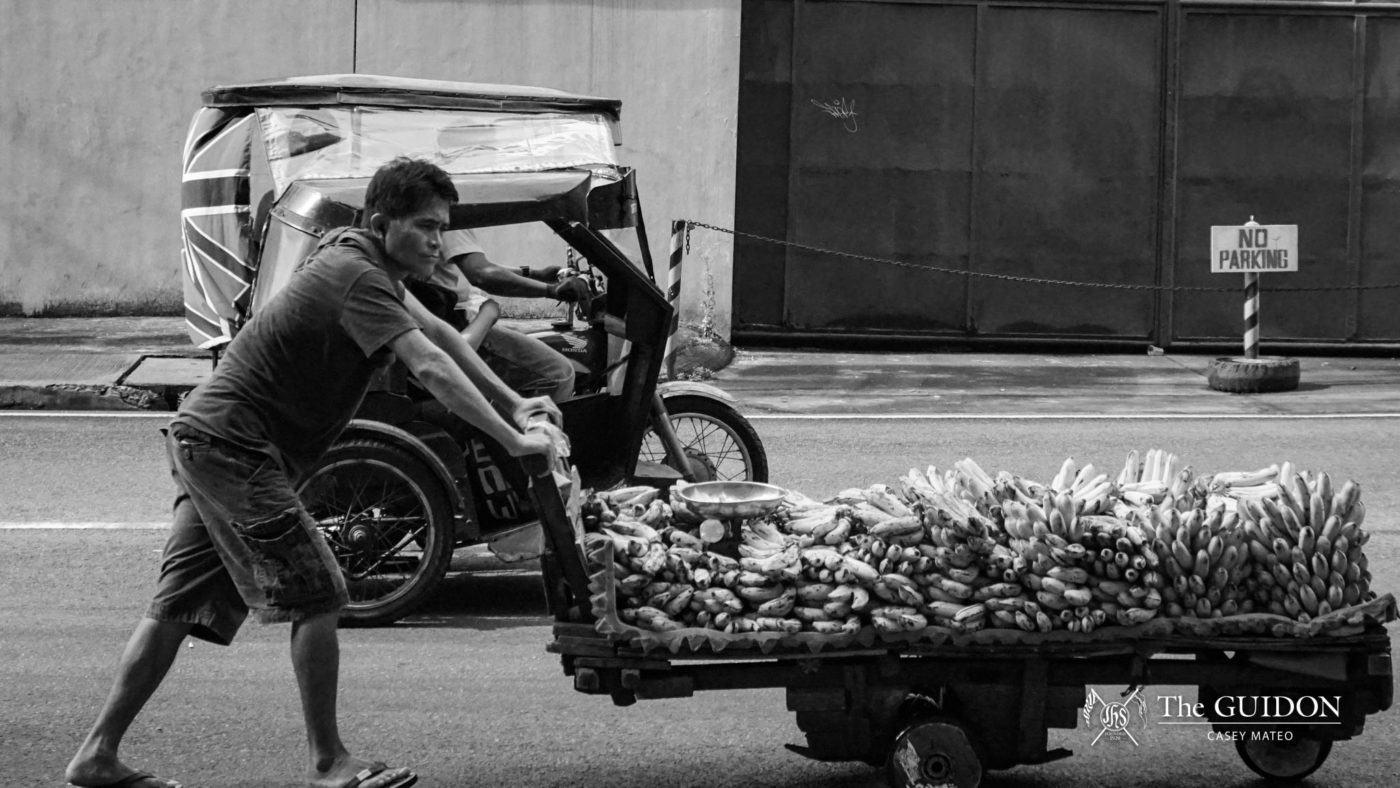THROUGHOUT HISTORY, civil society has played a crucial role not only in supporting marginalized sectors but also in moving Filipinos to champion welfare and justice—the latter of which culminated in the instigation of the 1986 EDSA Revolution. Its role has since re-emerged in the advent of the COVID-19 pandemic, as non-governmental organizations (NGO) endeavor to mitigate the crisis’ impact on vulnerable communities amidst inadequate government response.
Despite the urgent need for concrete state support, the glorified cultural notion of resilience continues to prevail among media and public figures. Such depictions and scenarios evoke questions on the state’s failure to serve the public, as well where the culture of demanding accountability lies in national consciousness.
Taking advantage of resilience
The resourcefulness of the Filipino at unjust costs shines through in the absence of aid from the government and civil society organizations (CSO). For instance, former senior researcher of the University of the Philippines (UP) Resilience Institute and current volunteer for the UP COVID-19 Pandemic Response Team Timothy James Cipriano cited a concept called space maximization, where informal settlers are forced to efficiently utilize their cramped spaces in order to make their conditions livable.
“It’s been a part of their lives that they have to make sacrifices, and then to be more creative to cover up, so to speak, the government’s lack of action…” he stated. “[But] not all people are capable of doing that. How about those people, who are part of the poorest of the poor of society, who [have a] low capability to be more creative as others who are given the privilege of being creative?”
Resilience, however, is not without its merits. Communications Officer of Jesuit-affiliated NGO Simbahang Lingkod ng Bayan (SLB) Xavier Alvaran stated the importance of this value in empowering sectors to “break cycles of dependency and abject poverty,” but warned that it is vulnerable to misuse.
“What we don’t believe in is when people in power use the value of Filipino resiliency to justify their corruption, incompetence, and shortsightedness,” Alvaran reasoned.
Filipino resilience has been praised locally and internationally, but in the COVID-19 pandemic, citizens have become increasingly critical of the government’s use of publicity stunts and glorified resilience stories in place of comprehensive response strategies.
Filling the gaps
Inadequate government response to the COVID-19 pandemic suggests that long-running problems in governance—such as corruption and misplaced priorities—are underlying factors. Alvaran cited SLB’s experience with local officials who either overlook or disregard their responsibility to form disaster response plans.“[Many] local governments work in the framework of addressing only short-term issues, culturally and politically,” he said.
Similarly, Benigno Balgos, PhD, a Development Studies lecturer and consultant to several NGOs mentioned that conflicting political interests easily halt the potential of policies to deliver effective public service. Moreover, Alvaran, Balgos, and Cipriano reiterated that government bureaucracy, lack of funding, and insufficient policy implementation delay the development of more sustainable sectors. This, in turn, keeps social services shouldered by CSOs.
“As much as possible, you want [CSOs] to complement the work that [the government is] doing,” Balgos remarked, “Hindi [dapat] pinapalitan ng CSOs yung trabaho ng gobyerno (CSOs should not be doing the government’s job).”
Inadequate social services leave many in dire need of aid, prompting NGOs to fill in the gaps. Frontliners’ Kitchen Co-founder Jeanill Migraso explained that long hours, lacking work benefits, and closed establishments leave frontliners tired and underfed.
“They’d say that at least receiving meals says a lot [and] that there’s still people [cheering and caring] for them,” Migraso said of frontliners demoralized from harsh work conditions.
Another NGO initiative is Project Pagsibol, which aims to provide relief and long-term solutions for afflicted farmers. Tricia Colayco, one of Project Pagsibol’s project heads, laments over the systemic issues that have plagued the agricultural sector even before the COVID-19 pandemic.
“[Tackling] the root issues affecting their sector would require the participation of larger actors in the country like the government,” Colayco said, as Project Pagsibol only considers itself a band-aid solution. Though grateful for their respective successes, Milagro and Colayco assert that their efforts are not enough. This success, Migraso said, ultimately denotes insufficient public support.
Even with these successful efforts, NGO resources can only go so far. Both Migraso and Colayco expressed that inconsistent funding largely limits their efforts.
Holding accountability
There are several government initiatives already in place that aim to uphold social welfare. However, Cipriano describes that the lack of transparency and clear metrics of success on state policies make it difficult to measure the government’s effectiveness during the pandemic. The arbitrary enforcement of rules towards certain public officials also gives the impression that the law is “anti-poor,” Cipriano pointed out. While he believes social media is a valid tool for holding accountability, criticisms directed towards officials are often taken personally.
“If [public officials] did something wrong, then [they] have to hold [themselves] accountable…it seems that this government has been very sensitive to criticism,” Cipriano reasons.
Civil society, then, serves not only as a tool for social development but also as the government’s watchdog. Manifestations of this role was seen in the 1986 EDSA Revolution which, according to the Asian Development Bank Civil Society Brief, was largely realized by the activism of CSOs. Since then, CSOs have continued to struggle in lobbying for workers, indigenous peoples, anti-corruption campaigns, among other things despite recent government crackdown on CSOs.
For Alvaran, their work as CSOs is inseparable from politics. He notes that politics “defines how we affect and influence one another in the society, [and] how we make decisions as a democracy.”
Furthermore, Balgos stated that civil society serves as a bridge between the government and its constituents. He stressed the importance of sectors, citizens, and civil society in being provided avenues to be heard in order for them such that public policies truly address their needs.
It becomes crucial now, more than ever, to look back on the lessons on defending democracy and fighting cultures of impunity that the legacy of the 1986 EDSA Revolution has left behind. Without this, and with romanticized notions of resilience left unchecked, the systemic issues that the movement once sought to end three decades ago may only dig in deeper.




